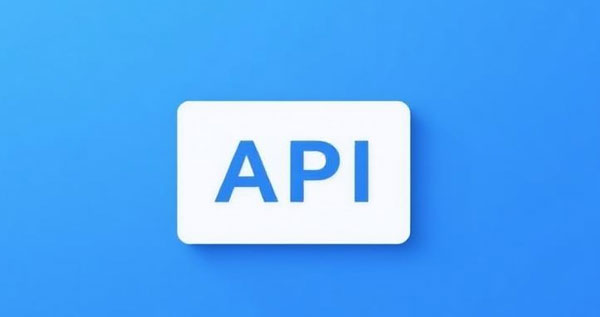Why I Don't Recommend Using Free Proxies: Risks and Better Alternatives
Introduction: Is a Free Proxy Really Worth It?
In today’s internet landscape, many users seek to hide their IP addresses for privacy protection or to bypass geo-restrictions. Proxy IPs have emerged as a common solution for these needs. However, when choosing a proxy service, many people are tempted by "free proxies," thinking they are a cost-free way to achieve their goals. But is using a free proxy really a good idea?
In reality, free proxies come with significant security risks, poor stability, slow speeds, and the potential for your personal data to be exposed to hackers. This article will delve into the different types of proxy IPs, the risks of using free proxies, and how to choose a secure and efficient proxy solution.
Understanding Proxy IPs: Types and Functions
Before discussing the dangers of free proxies, it is essential to understand the fundamentals of proxy IPs and their different types.
1. The Role of Proxy IPs
Proxy IPs act as intermediaries between users and the internet, hiding real IP addresses while facilitating online activities. Their applications include:
Bypassing geo-restrictions: Accessing region-locked content and services.
Enhancing privacy: Preventing websites from tracking user IPs.
Automating online tasks: Useful for web scraping, SEO monitoring, and market research.
Managing multiple accounts: Preventing IP bans when operating multiple accounts on social media or e-commerce platforms.
2. Main Types of Proxy IPs
Proxies can be classified based on their sources and characteristics:
Originates from cloud servers or data centers, not linked to individual users.
Fast, cost-effective, ideal for large-scale data scraping, SEO monitoring, and ad verification.
Easier to detect and block by websites, with lower anonymity.
Uses real IPs from actual internet users, offering high anonymity.
Suitable for market research, social media management, and e-commerce.
More stable and secure but generally more expensive.
Free Proxy
Unverified sources, often provided by unknown individuals or organizations at no cost.
Extremely high security risks, including data theft and connection instability.
Why You Should Avoid Free Proxies
Many users are drawn to the "free" aspect of these proxies, but they overlook the significant risks involved. Here are the major concerns with using free proxies:
1. Serious Security Risks
The sources of free proxies are often unclear, meaning there is no guarantee of safety. Some common risks include:
Data Theft: Some free proxies monitor your traffic, recording login credentials, credit card details, and even private conversations.
Traffic Hijacking: Free proxies may modify your web requests, injecting ads, malware, or redirecting you to phishing sites.
Man-in-the-Middle (MITM) Attacks: Attackers can intercept communications between you and websites, altering or stealing sensitive data.
2. Poor Connection Stability and Performance
Because free proxies are not maintained by a legitimate provider, they often suffer from:
Frequent Disconnections: IP addresses change unpredictably, requiring constant reconfiguration.
Slow Speeds: Overloaded servers lead to sluggish connections.
High Latency: Free proxies are often located in distant regions, increasing response time.
3. High Probability of Being Blocked
Many websites recognize and blacklist free proxy IPs, leading to:
Restricted Access: Many free proxies are already banned by platforms like Google, social media sites, and e-commerce services.
Account Suspensions: Websites may detect unusual behavior, such as excessive requests from the same IP, resulting in account bans.
4. No Customer Support
Unlike paid proxies, free proxies offer no technical assistance. When issues arise:
You have no way to contact a support team, as the providers are usually anonymous.
There is no guarantee of long-term usability, forcing you to constantly search for new proxies.
How to Choose a Safe and Efficient Proxy Solution
Given the risks of free proxies, what are the best alternatives?
1. Datacenter Proxies
Datacenter proxies are ideal for applications requiring high speed and bulk data handling, such as SEO monitoring, web scraping, and ad verification. LuckData’s datacenter proxies provide a cost-effective, high-performance, and stable solution suitable for businesses and developers.
2. Residential Proxies
For activities requiring greater anonymity, such as market research, social media operations, and e-commerce, residential proxies are a better choice. LuckData offers over 120 million residential IPs, covering more than 200 countries and regions. These proxies support automatic IP rotation, reducing the risk of bans.
3. Rotating Residential Proxies
For tasks that require frequent IP changes, such as stock market analysis or SEO tracking, rotating residential proxies ensure seamless switching of IPs while improving data collection efficiency.
Conclusion
While free proxies may seem like a convenient and cost-effective option, they come with significant drawbacks, including security vulnerabilities, unstable connections, frequent bans, and lack of support. The risks far outweigh the benefits, making them an unsuitable choice for both individuals and businesses.
Instead of using free proxies, a secure, stable, and high-performance proxy service should be considered. When selecting a proxy provider, factors such as security, stability, speed, and anonymity must be taken into account to ensure a smooth and reliable experience.
If your needs involve market research, ad verification, social media operations, or other data-intensive applications, choosing a well-managed proxy solution with strong compliance and high availability is the smartest decision.




